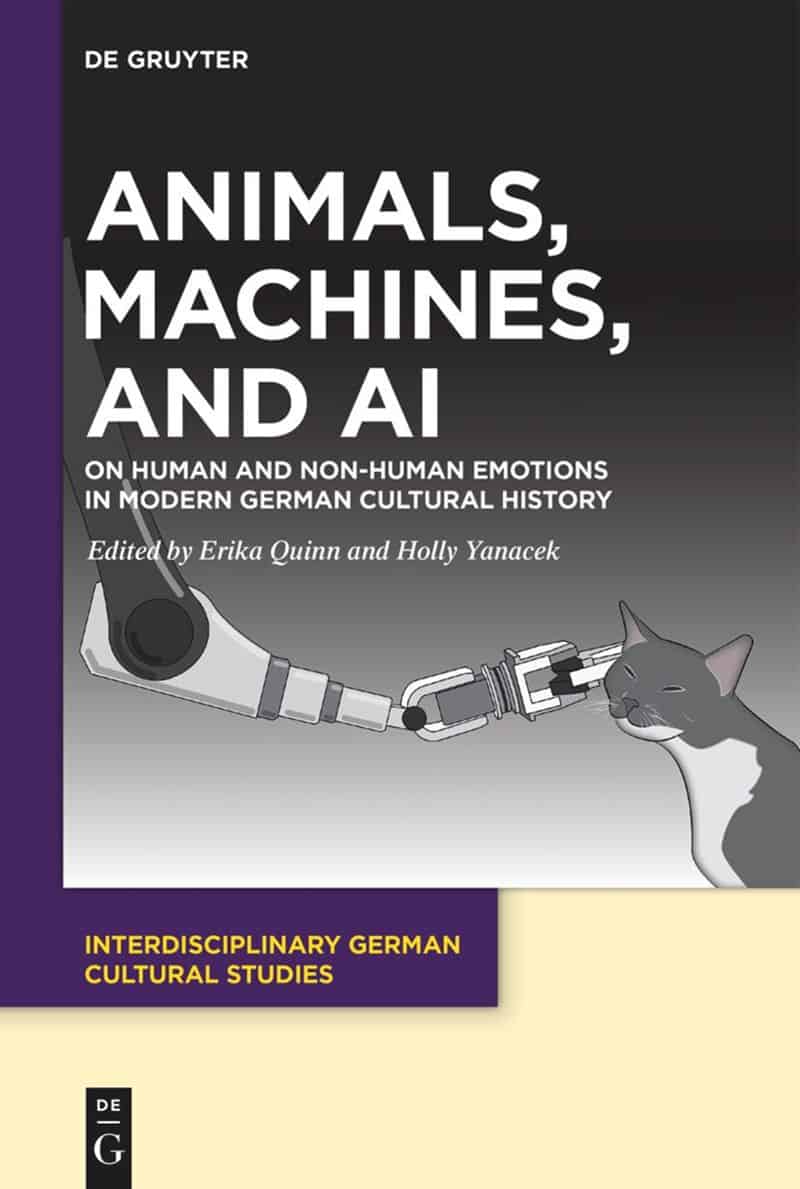Erika Quinn and Holly Yanacek on “Animals, Machines, and AI”
Erika Quinn's and Holly Yanacek's most recent book examines the emotional relationships between humans and non-humans in modern German cultural history. We wanted to learn more from the two volume editors, so we got together for a new book talk!
What does it mean to be human? How can other forms of being, such as non-human animals or algorithms, help us understand what makes humanity unique? Such questions are central to posthumanist research, which has been proliferating in recent years across the humanities and social sciences.
If you liked the book talk and want to read more from Erika Quinn and Holly Yanacek, check out their blog post “Humans, Robots, and a Virus: How COVID-19 Has Changed Our Relationship With Artificial Intelligence.”
Yet they are anything but new: as Erika Quinn and Holly Yanacek show in their recent book, philosophy, literature, and the visual arts have been fascinated by non-human forms of life and interrogated received understandings of the human for centuries.
The volume “Animals, Machines, and AI: On Human and Non-Human Emotions in Modern German Cultural History” sheds light on representations of non-human emotions and of the relationships between humans, animals, and machines in German culture from the nineteenth century to our pandemic-ridden present.
Myrto Aspioti from De Gruyter sat down with the volume editors for a virtual chat on the challenges of writing a book about our relationship to machines and animals just as Covid-19 hit, forcing us all behind screens and in the sole company of our beloved pets.
You are currently viewing a placeholder content from YouTube. To access the actual content, click the button below. Please note that doing so will share data with third-party providers.
The conversation is also available as a podcast:
You are currently viewing a placeholder content from SoundCloud. To access the actual content, click the button below. Please note that doing so will share data with third-party providers.
You can find the recording also at Spotify and Apple Podcasts.
The editors:
Dr. Erika Quinn is Professor of History at Eureka College. Her research interests lie in Central European cultural history, focusing on subjectivity and the history of emotions. Her book, “Franz Liszt: A Story of Central European Subjectivity”, was published by Brill in 2014. She has also published articles on twentieth-century war widowhood and gender in the “Journal of First World War Studies”, the “Women in German Yearbook”, and elsewhere.
Dr. Holly Yanacek is Assistant Professor of German at James Madison University. Her research focuses on emotion, narration, gender, ethics, and the non-human in 19th- to 21st-century Germanophone literature and culture. Her previous research has been supported by grants from Fulbright, the German Historical Institute, and the DAAD, and she has recently published articles in “German Life and Letters”, “Monatshefte”, and “Novel: A Forum on Fiction”. Yanacek co-edited (with Colin MacCabe) the collaborative book “Keywords for Today: A 21st Century Vocabulary” (Oxford University Press, 2018).
[Title image by miriam-doerr/iStock/Getty Images Plus]
